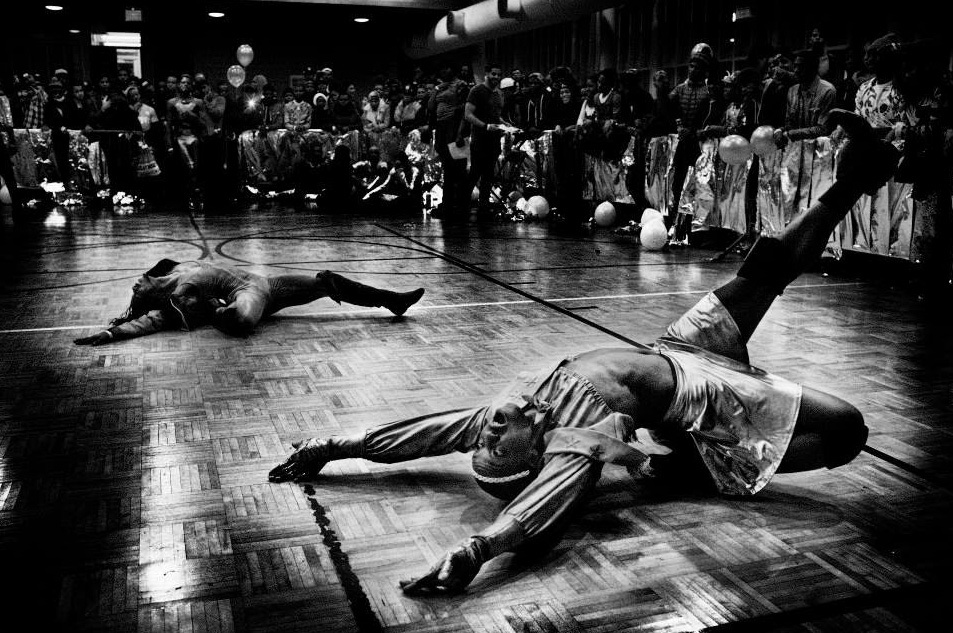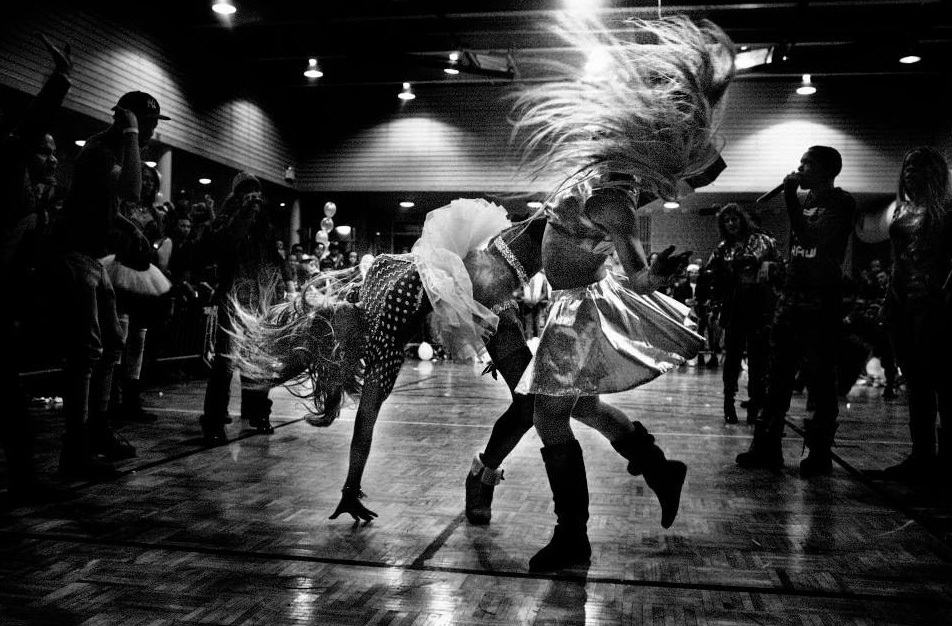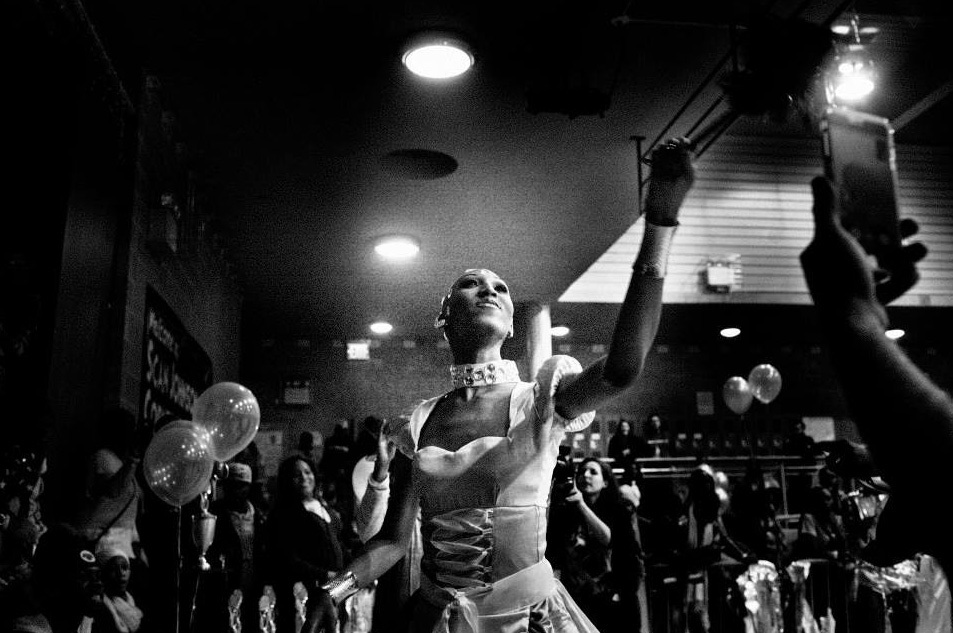
When you hear the word “ballroom,” it may conjure up images of a couple primly dancing in formal attire. But “Ballroom culture” loses all of the stuffiness and replaces it with a defiant recognition of LGBTQ culture.
Now, a Colorado nonprofit focused on promoting "civic health" is partnering with a Denver-based LGBTQ House for two unique ballroom events. They hope the celebrations will raise awareness of ballroom culture as an art form, one that champions LGBTQ culture and its contributions to society.
Warm Cookies of the Revolution is a Denver-based nonprofit dedicated to building civic engagement. The House of Lauren is part of the Colorado Ballroom scene. The two are joining forces to explore the links between the movement for Black Lives, the House and Ball community's culture, history, and efforts to decriminalize sex work.
You may have heard of ballroom from the popular TV series “POSE,” or the documentary “Paris is Burning,” but that is only a hint of the richness that is Ballroom.
Ballroom culture emerged as a defiant response to racism, homophobia, and transphobia.

The ballroom scene, also known as ball culture, is an LGBTQ subculture that traces its beginnings as far back as the 1860s in New York City and 1920s Harlem. What it has grown into today was founded by young African Americans and Latinos, where members of different houses walk or compete for recognition and prizes.
During a Ball, participants “walk” various categories to display their creations and presence, much like walking a runway. The categories often include Femme Queens, Butch Queens, DRAG — which is an acronym for Dressed As Girl — and of course, Voguing.
Balls became a safe space for queer youth of color to express themselves freely.
It is still emerging in Colorado. Now The House of Lauren and Warm Cookies of the Revolution are presenting a two-day/two-part event Ask Me 3 Questions, followed by the Miracle Ball.
Davry Ratcliffe is the house father and producer of the ball.
“The Miracle Ball is just trying to have more opportunities for the queer community to, express and to challenge themselves artistically,” Ratcliffe said. Ratcliffe will also moderate the "Ask Me 3 Questions" event.
Executive director of Warm Cookies of the Revolution, Evan Weissman, says it took a couple of years of work to produce these events.
“We have a wonderful mix. There are three folks who are local, including Davry is one of those — who is the MC. And then two that are sort of legends in the ballroom scene. So Frank Leon Roberts [who] wrote the Black Lives Matter syllabus, and he also started a group called the Baldwin Hansberry Project,” Weissman said. “And then Michael Roberson, [who] has done a lot on promoting house-involved community culture, and linking it to a lot of political issues, especially having to do with Black Gay health. And then locally, Tiara [Kelly who] is House mother for the House of Lauren.”
While Kelly is relatively new to Ballroom, her longstanding role in the LGBTQ community has prepared her. Kelly says she was motivated to become a community leader in the Colorado Springs area because of the Club Q shooting.
“I was a show director at the time of the mass shooting that happened in November. My show was actually the night before that. So right after that happened, it just automatically became a part of me to start rebuilding or uplifting the community there,” Kelly said.
Kelly said she has been involved in activism and advocacy before, “but, after the Club Q incident, I really dove into the LGBTQ community, particularly the “T” and just making sure that my sisters and brothers have the support that they need to make it through this time of healing.”
Roberson is an adjunct professor at the New School University of New York City at Eugene Lane College and at Union Theological Seminary. He is also a member of the House of Ballroom community. He is returning to Colorado for this event to support the progression of the local Ballroom community and ensure they understand the powerful history.

Roberson said he wants the Denver houses to understand the heritage of Ballroom Culture.
“Well, in many ways it's a human story. It's the story … particularly of Black women who have always had to make a way out of no way,” Roberson said. “It is a story even more specific of Black and Latinx women who are of trans experience, who if not for their labor, if not for their love, if not for them putting their bodies on the line. There is no such thing as a movement. There is no LGB without T because T began it.”
Roberson says society has a long way to go to atone for not telling the truth about where the LGBTQ community has come from.
“So we have to stop being complicit, 'cause we are complicit at the continued brutalization of Black and Latinx trans women.”
Ratcliffe hopes these events promote community and understanding and help bring people together.
“I want Ballroom not to just be a gimmick. I'm not doing Ballroom for clout. We're doing more things than putting on a “show”… that we are also actively being in the community.”
Ask Me 3 Questions is at Denver’s Cleo Parker Robinson Dance on Friday and The House of Lauren’s Miracle Ball is at Rag + Bale in Denver this Saturday.








